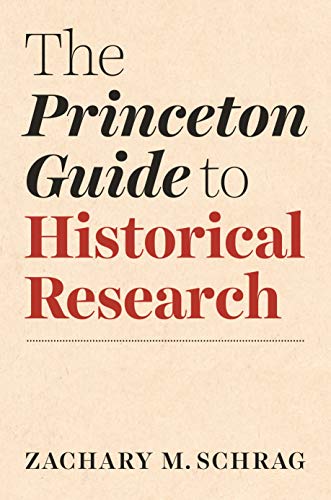
The Princeton Guide to Historical Research (Skills for Scholars)

For other works, comparisons emphasize the effects of differing choices.
Zachary Schrag • The Princeton Guide to Historical Research (Skills for Scholars)
Memoirs make troublesome primary sources. Some memoirists hand some of the work over to ghostwriters, making it hard to determine which words truly reflect the views of the putative author.
Zachary Schrag • The Princeton Guide to Historical Research (Skills for Scholars)
The best historians follow Marvin, doing their best to explain human behavior not as the result of someone trying to do evil, but of people doing the best they can with what life has given them.
Zachary Schrag • The Princeton Guide to Historical Research (Skills for Scholars)
Most commonly, especially in journal articles, a historian leads with an exciting story plucked from the middle of the chronology.
Zachary Schrag • The Princeton Guide to Historical Research (Skills for Scholars)
Local and regional history can illuminate broader geographies.
Zachary Schrag • The Princeton Guide to Historical Research (Skills for Scholars)
In addition to letters written by characters in a plot, letters can set a scene.
Zachary Schrag • The Princeton Guide to Historical Research (Skills for Scholars)
The second optional part is the historiography, which highlights the novelty of the work’s findings. Table 13.1. Paragraph Budgets for Short, Medium, and Long Papers Five-Paragraph Essay Ten-Page Paper Thirty-Page Paper Introduction 1 2 8 Body 1 1 6 16 Body 2 1 6 16 Body 3 1 6 16 Conclusion 1 2 2 Total Paragraphs 5 22 58 LEDES
Zachary Schrag • The Princeton Guide to Historical Research (Skills for Scholars)
Yesterday’s scholarship can become today’s primary source.
Zachary Schrag • The Princeton Guide to Historical Research (Skills for Scholars)
The challenge is to make as bold a claim as you can support with evidence.